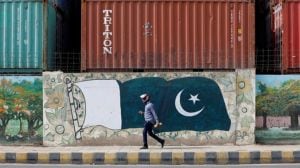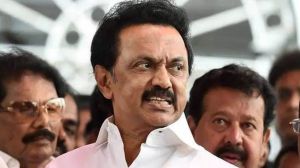Two paths, 23 members
Events have been overtaking the Hurriyat Conference for some months now. It has reached a defining point in its history where the positions ...

Events have been overtaking the Hurriyat Conference for some months now. It has reached a defining point in its history where the positions adopted by many of its constituent leaders are no longer as united or even coherent as before. But the world has changed in many ways after 9/11. Separatism is no longer acceptable to the international community and the cult of terrorist violence, especially of the type that goes under the label of jihad, is under attack across the globe. At the same time, the landscape in Jammu and Kashmir has been undergoing some fundamental changes during the past two years. Elections in the state provided visible proof, if it was indeed needed, of this change and the rejection of the ideology and philosophy of separatism through the instrument of terror.
The leaders of the umbrella group are no doubt engaged in deep introspection about the path they should follow in the future. There are bound to be many differences among them about the style and substance of the policies to be adopted. They will need to remember that the choices they make would affect the lives of thousands, if not millions, of innocent people, essentially those they claim to represent. Terrorism, of course, has not started to wind down, leave alone die down, thanks to the continuing support in moral and material terms the phenomenon gets from across the border. However, it should also be clear to everyone that violence as the means of achieving political goals is simply not going to be acceptable and this path could hardly secure the future of the overwhelming majority of the state.
It is against this context that the hardline elements of the 23-party Hurriyat Conference stand at the crossroads. One path leads to peace and prosperity, and the other to continuing violence, misery and tragedy. One path leads to the mainstream, while the other leads to marginalisation. What the people of the state need most are opportunities for economic development with social justice. This requires peace and good governance; which itself requires the active participation of all political leaders. The Hurriyat would forego its already dwindling right to speak for the people by not participating in the process of bringing back peace and prosperity to the state through a transparent process based on democratic principles. Deputy Prime Minister L.K. Advani has already indicated that the Hurriyat should talk to the government8217;s interlocutor. This would help bring their viewpoint into the calculus of future policies. Failure to do so would amount to an abdication from the organisation8217;s responsibilities to the people.
- 01
- 02
- 03
- 04
- 05































